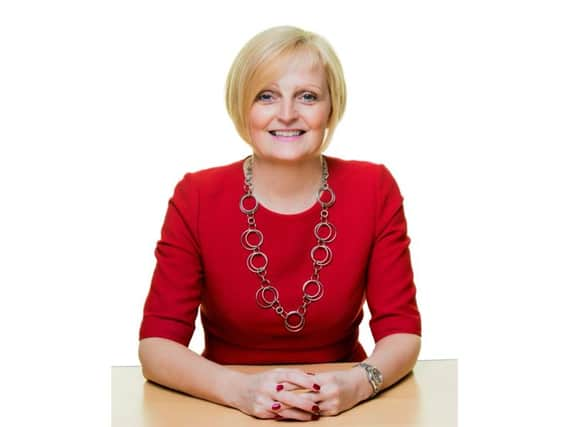House building shake-up calls to solve homes crisis


That was the broad consensus among participants in the Yorkshire and the Humber leg of The Big Conversation, a series of online discussions organised and held around the UK by Lloyds Banking Group.
The latest roundtable event, Building a sustainable future for Yorkshire and the Humber, looked at how local and national government can work with the private sector to give the region the homes it needs.
“If we’re really going to sort out an inter-generational housing crisis there needs to be a fundamental shake-up in the way we deliver homes,” said Andrew Weaver, chief executive of Doncaster-based housebuilder Strata Homes.
He said the housing industry was based on short-termism – “short-term goals, targets and de-risking” – and a narrow product band, which was dominated by “the middle-market family 1,400 sq ft home”.
“We need a different relationship between central government and city regions and local government. Genuinely, it can be fixed, but we’ve had a change of housing minister every year for the last decade, and housing has become a political pawn.”
Several participants agreed that the biggest issue facing the sector was affordability. The average home in the region can cost almost £400,000, yet salaries remain lower than the UK average.
A person earning average local wages would need to be able to pay almost ten times their income to buy a property in the more affluent North Yorkshire, according to Data North Yorkshire.


Andy Mason, Head of Housing Development- Mortgages at Lloyds Banking Group, said: “House price inflation has outgrown wage inflation over the past 25 years by about threefold, so it’s really difficult for people to save that deposit, not least because they have to pay rent.
“About 40 per cent of people’s income goes on rent, and it’s really difficult to save a deposit when you’re struggling to get by and paying rent on a regular basis.”
The solution, said Kevin Hollinrake, Conservative MP for Thirsk and Malton and Vice Chair of the All-Party Parliamentary Group on Housing in the North, lay in strategically investing government money.
“We need to increase the availability of social housing through massive public-sector investment over an extended period of time, such as 30 years.
“There’s a good pay-back on that – it makes perfect sense to do it. You get a four per cent return at a time when government can borrow at negative real interest rates. We should be investing £15-20bn a year for 30 years; it would pay back through reductions in the housing benefit bill.”
Mr Hollinrake also suggested other remedies to increase affordability, such as discount market sales, whereby homes are sold to first-time buyers on a part-ownership basis, with the other share retained by the local council.
Mr Mason said that shared ownership was a form of tenure with a poor reputation, but that was undeserved, and an area that needed investment.
“We need to turn it around into something that’s much more positive,” he said.
“Would you rather rent for the rest of your life, or would you rather own at least some of your property and start to benefit from the equity growth in that proportion and then step your way into full ownership over time?
“We need to make shared ownership easier – a good, acceptable step for first-time buyers to get onto the property ladder.”
One topic that met with broad agreement was retrofitting. The construction of affordable, energy-efficient homes is being widely encouraged across the UK, but Yorkshire and the country can only meet their carbon reduction targets if energy-saving technology is installed in the existing housing stock.
“It’s a really practical problem,” said Mr Mason. “For example, the average home has an EPC [energy performance certificate] rating of D, and it costs people roughly £15,000 to invest in their home to move to a B rating, but they only really save about £300 per annum on their energy bills. So from a business case perspective, it’s a really challenging thing, and it’s an area where some form of government incentive would definitely help as a catalyst.”
Karen Brown, Senior Policy Adviser at the Sunderland-based Northern Housing Consortium, added: “We’ve estimated that across the three northern regions there are 200,000 existing homes per year that need retrofitting to get to a C rating by 2035. There’s a huge industry to be created around that.”
Investment in retrofitting homes with measures to make them more environmentally sustainable was not only seen as environmentally desirable, but also as a good way to increase employment.
“The cost of retrofitting is quite high, but there’s the potential to create hundreds of thousands of jobs right across the country – with a significant proportion concentrated in the North,” said the IPPR’s Jonny Webb.
“These aren’t just low-paying jobs – they’re often highly skilled, quite specialised roles which can give a really good career.”
Yet some participants pointed out that all these measures – overhauling the system to boost affordable housebuilding, introducing incentives and tax breaks, reforming the land market and planning regime, and encouraging retrofitting to curb the nation’s carbon footprint and create employment – would require smooth cooperation between housebuilders and all levels of government.
“We want to build more genuinely affordable housing, we want to build more social housing, we want to build homes of better quality, and we want to be able to retrofit existing homes, but what are the key barriers to that?” asked Mr Webb.
"We need a long-term plan in place. We currently get parties in government with their plan for the next five years, because that’s the way politics works, but we need to start thinking in terms of 10 years, 15 years, 20 years; we need a system which promotes that long-termism.”
But such was the magnitude of the problem that Strata Homes’ Mr Weaver suggested that an “apolitical housing ministry” might be needed to raise the sector above party politics.
“To get to 300,000 homes per year and more of the right tenure, that’s going to need intervention on a massive scale in the North,” he said.
“It may be that this ‘apolitical housing ministry’ needs to be thinking about a nationalised approach to a housing programme.”
The Big Conversation
The Big Conversation is a series of roundtable discussions held around the UK by Lloyds Banking Group. The events bring together voices from business, the public sector, politics and academia to discuss how best to counter the economic and social effects of the Covid-19 pandemic, and the findings will be shared across the UK later this year.
The participants in Building a sustainable future for Yorkshire and the Humber were:
Catherine Rutter - Group Ambassador for Yorkshire and The Humber, Lloyds Banking Group and Managing Director, Connect
Steve Harris - Regional Director, Head of SME Yorkshire & North East, Lloyds Banking Group
Andy Mason - Head of Housing Development - Mortgages, Lloyds Banking Group
Kevin Hollinrake MP - MP for Thirsk and Malton and APPG Vice Chair on Housing in the North
Andrew Weaver - Chief Executive, Strata Homes
Colin Bennett - Investment Director, Housing Growth Partnership
Jonny Webb - Research Fellow: Energy, Climate, Housing and Infrastructure, IPPR
Karen Brown - Senior Policy Adviser, Northern Housing Consortium
Dr Ornella Luorio - Associate Professor of Architecture & Structures, University of Leeds